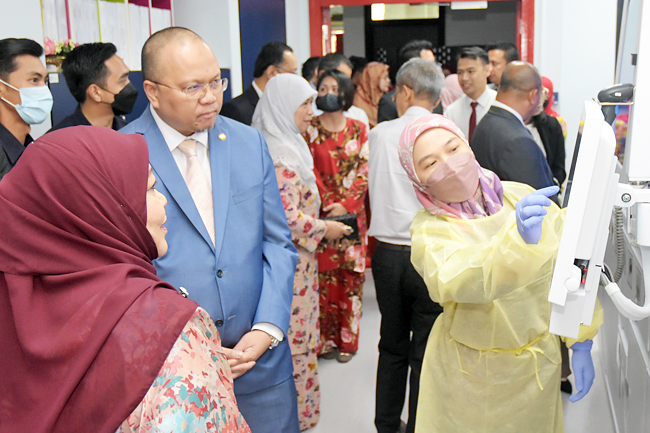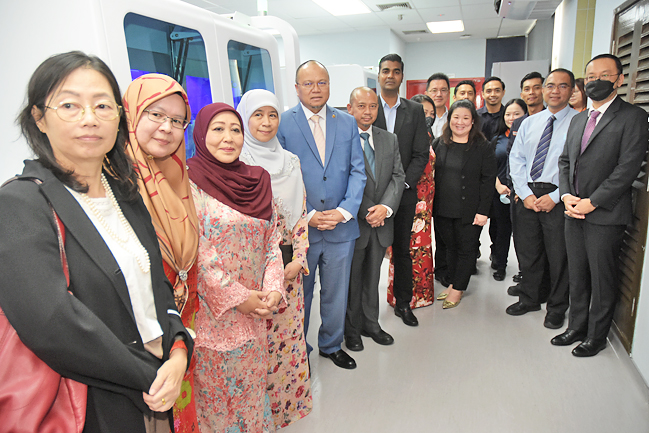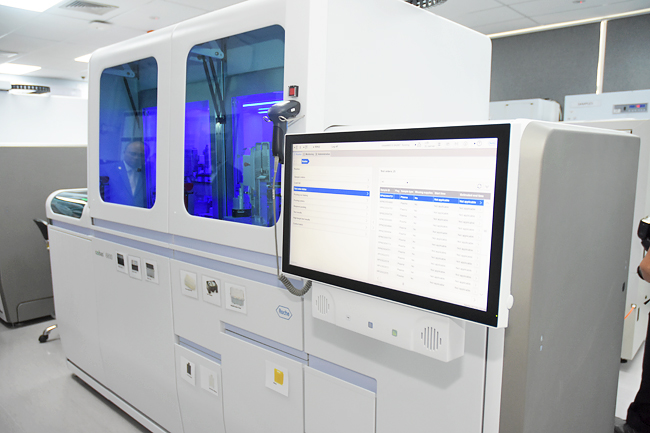James Kon
The Ministry of Health (MoH), through the Department of Laboratory Services, now has the capability to detect blood-borne diseases much earlier and shorten the ‘window period’ between the time an individual is first exposed to the virus and when the disease can be detected through laboratory testing to further increase donated blood’s components’ safety.
Minister of Health Dato Seri Setia Dr Haji Mohd Isham bin Haji Jaafar said this during the launch of nucleic acid amplification testing (NAAT) at Raja Isteri Pengiran Anak Saleha (RIPAS) Hospital yesterday to mark World Blood Donor Day.
The NAAT is one of the laboratory tests recommended by the World Health Organization (WHO), and neighbouring countries such as Malaysia, Singapore and Thailand who have been using it to detect blood borne diseases such as Hepatitis B, Hepatitis C and Human Immunodeficiency Virus (HIV).
NAAT is carried out in parallel with existing screening tests – antibody and antigen tests.
In the early stages, viruses infecting the human body will not be detected by laboratory tests such as antibody or antigen tests, due to cells in the body requiring time to identify the virus and then react with the production of antibodies or the viral load within the body is still too low to be detected with the existing tests. Therefore, NAAT, based on molecular techniques, can multiply the existing virus and detect as well as identify the infection earlier in a shorter window period.




The early detection of virus in blood is vital to ensure that the donated blood is safe before being used. The safety of donated blood will also be improved. This is in line with the MoH’s strategic plan in improving the safety and quality of patient healthcare as well as the Global Patient Safety Action Plan.
“The Department of Laboratory Services implemented NAAT as part of the mandatory screening tests on donated blood. The test will be able to detect infectious diseases much earlier,” the minister said.
Dato Seri Setia Dr Haji Mohd Isham also highlighted that the test will be able to support the Infectious Diseases Act and ensure that blood donors are free from the risk of carrying germs, especially HIV, and at the same time detect and control the spread of diseases.
However, blood donors should also provide correct information when filling out the blood donation form and during the health check-up.
He warned that providing false or misleading information may result in a fine or prison sentence or both if the donor is found guilty of violation of Chapter 204 of the Infectious Diseases Act.
The minister also toured the facility.






